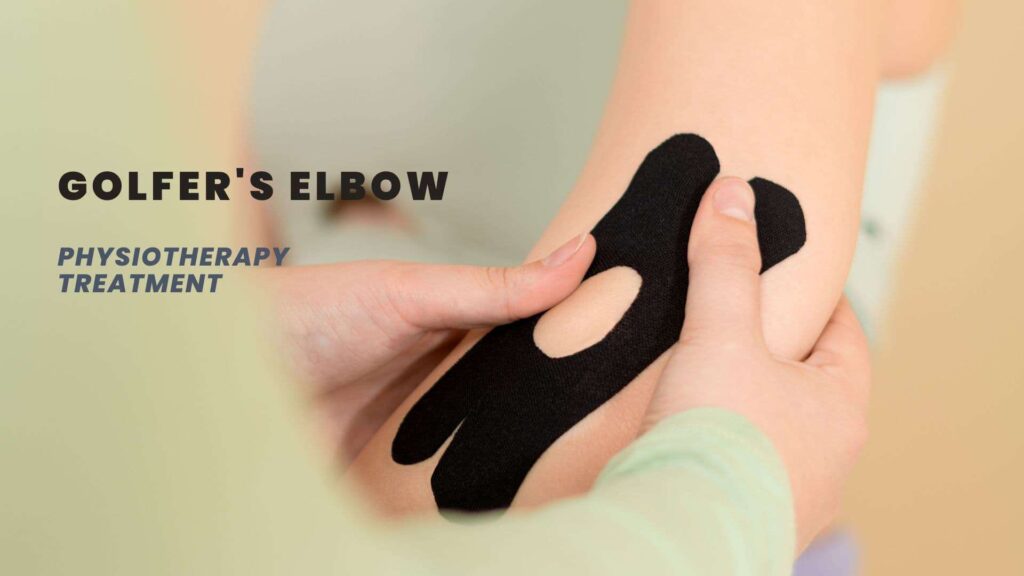Golfer’s Elbow Physiotherapy Treatment
Golfer’s elbow, also known as Medial Epicondylitis, Medial Epicondylalgia or Medial elbow pain.
A Golfer’s Elbow is a repetitive strain injury to the wrist and forearm flexor muscles. It can occur when the muscles and tendons in the forearm are overloaded. The repetitive movements can cause inflammation and irritation in your tendons and joints, resulting in pain.
Golfer’s Elbow Treatment in Langley
Opal Physiotherapy and Health Clinic in Langley has been providing rehab services to people in pain for many years. Our physiotherapist can help you recover from Golfers Elbow using a tailored program to help you return to your everyday activities. Our physiotherapy team is committed to helping you achieve your goals.

What causes Golfer’s Elbow?
A golfer’s elbow is not just common among people who play golf but can also occur among those who use their hands to do work such as painting, manual labour, pitchers, etc. It usually occurs after repeated wrist, forearm, and elbow motions. For example, forceful gripping and twisting movements during activities can cause medial elbow pain. The pain is often felt when lifting objects while turning the palm up.
The pain typically starts at the inner side of the elbow and moves towards the outside. There is usually a stiffness in this area, and sometimes swelling can be seen. The pain may also spread up to the lower forearm and wrist. It may worsen with lifting heavy objects or gripping tightly on one’s handgrip.
Golfer’s Elbow-risk factors:
Golfer’s elbow is a condition that affects the tendons inside the elbow.
The following are risk factors for a golfer’s elbow:
The repetitive gripping, twisting, and flexing motions involved in these activities can lead to small tears and inflammation of the tendons attaching to the medial epicondyle of the elbow. Proper technique, equipment, conditioning, and rest periods are essential for injury prevention.
Golfer’s Elbow – symptoms:
The symptoms of a golfer’s elbow are:
General management of Golfer’s Elbow?

Physiotherapy treatment for Golfer’s Elbow In Langley
If you are struggling with pain in your elbow, you may have a Golfer’s Elbow. At Opal Physiotherapy, we provide a range of treatments for different injuries, including the golfer’s elbow.
Our treatment approach includes:
Physiotherapists at Opal are trained to assess limitations in range of motion, muscle strength, and movement patterns contributing to the golfer’s elbow and provide the appropriate treatment.
We aim to help you return to normal activities and reach your goals. Our physiotherapists will provide hands-on care, guidance, and accountability throughout your treatment. We are committed to partnering with you on your recovery from Golfers Elbow.
Are you ready to change your elbow pain and get back to life? Give us a call at 604-532-7887 or Contact Us.
